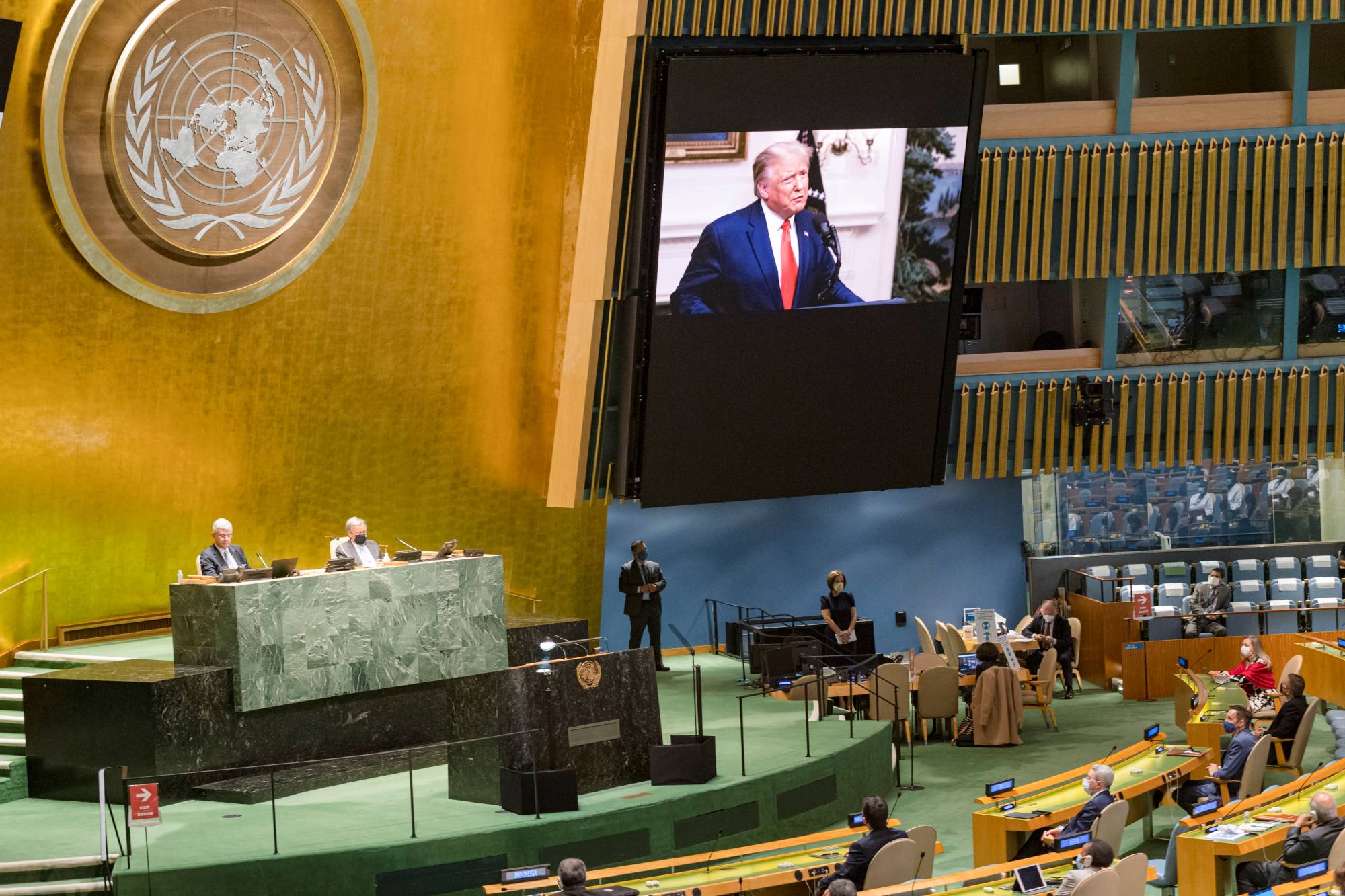A diamond jubilee deserves more than prerecorded speeches, but somehow a parade of three-minute videos broadcast to a mostly empty General Assembly chamber succinctly captures the moment for the United Nations. The world is facing a set of crises that is unprecedented in modern history — the COVID-19 pandemic, a global economy that has gone off the rails and a climate catastrophe — and the world body is distracted by geopolitical rivalries and a growing tendency of national governments to go it alone while complaining about the institution’s ineffectiveness. As U.N. Secretary-General Antonio Guterres explained in comments at the world body’s 75th anniversary, “we have a surplus of multilateral challenges and a deficit of multilateral solutions.”
This is, warned Guterres, “a 1945 moment.” The COVID pandemic has “laid bare the world’s fragilities. ... Climate calamity looms, biodiversity is collapsing, poverty is rising, hatred is spreading, geopolitical tensions are escalating, nuclear weapons remain on hair-trigger alert.” Yet even in this precarious situation, cooperative action remains beyond reach.
There is plenty of blame to go around. The U.S. essentially snubbed the world body. Although U.S. President Donald Trump was listed first among the 182 heads of state or government to address Monday’s commemoration, he did not deign to speak and instead dispatched the acting U.S. deputy U.N. ambassador who complained that for too long, the United Nations has resisted “meaningful reform,” lacked transparency and was “too vulnerable to the agenda of autocratic regimes and dictatorships.”


















With your current subscription plan you can comment on stories. However, before writing your first comment, please create a display name in the Profile section of your subscriber account page.